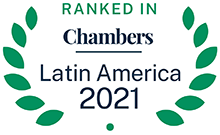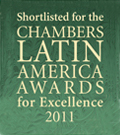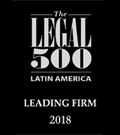-
About the firm
- The Firm
-
Members
- Our Members
Attorneys
- Henry Lang
- Juan Carlos Cersosimo
- Roberto Araya
- Mónica Romero
- Milena Jaikel
Support Personnel
- Edelweiss Schumacher
- Alejandro Marín
- Hermelinda Colville
-
How to...
- Latest News
- Contact Us
- Español
- Français
-
Expertise areas
-
Real Estate
-
Incorporation
-
Immigration
-
Litigation
-
Labor Law
-
Free Trade Zones
-
Trademarks
-

Incorporate
CHOOSING A CORPORATE STRUCTURE TO DO BUSINESS AND/OR INVEST IN REAL ESTATE IN COSTA RICA
Many foreign individuals starting a business in Costa Rica or merely purchasing real estate for investment purposes decide to use a corporate entity as the owner of such. This decision is a very wise one, and it is what we highly recommend to our clients as the first choice to be followed.
Ownership through a corporation allows to have flexibility and more predictability on areas ranging from estate planning (if share ownership is properly structured the investor can avoid his heirs a painful and lengthy long-distance probate procedure), tax management (as an example, rules on corporate expenses are more flexible than the ones on personal ones), and representation (shareholders meetings can facilitate granting special powers of attorney or other types of authorizations for many actions thus not requiring physical presence in the country).
The first question often asked by our clients is whether to use (or form) a Costa Rican corporate entity or one already existing and controlled by such individuals abroad. Our advice is, in most cases, the use of a local entity. Although foreign corporate entities can own land and engage in business activities in the country, registration procedures (both at the Public Register and with government entities) as well as negotiation of contracts with private parties can get complicated, delayed and/or find obstacles when they are involved.
In any event, if a foreign entity will be used, note should be taken that we normally recommend to register the foreign entity in the Costa Rican Commercial Register as a branch or at least to register specific powers of attorney for such also in the Costa Rican Commercial Register. Both cases require a special and formal procedure that may take several weeks.
As mentioned before, in the great majority of cases, the use of a local corporate entity is preferred. Although Costa Rican commercial law contemplates many types of corporate forms, only two of them offer the investor the comfort of having structures similar to the limited liability companies to which he or she may be used to in their countries of origin.
Such corporate forms are the “Sociedad de Responsabilidad Limitada” and the “Sociedad Anónima”. In both cases, shareholders are only responsible for their participation on the company’s social capital and their own personal assets are fully protected and out of reach from any potential creditor the company may have.
The “Sociedad de Responsabilidad Limitada”, also referred to as “S.R.L.”, “Limitada” or “Ltda”, is a simpler form than the “Sociedad Anónima” and in most cases fills-up the blanks on its legal treatment from the much broader regulation of the “Sociedad Anónima”. S.R.L.’s are usually used only if any of their special featuresare especially appealing to the investor.
The special features of the S.R.L. are mainly the following:
- Shares cannot be transferred to non-shareholders without the previous express consent of the other shareholders, who have a right of first refusal to purchase them.
- These companies require, for their administration, no more than one individual (Manager), thus this is an especially appealing structure for cases in which the investor does not want to use and register (making public) the names of additional individuals to form part of what in the S.A. would be called a Board of Directors, as explained below.
The “Sociedad Anónima”, also referred to as “S.A.”, is the most widely used corporate structure in Costa Rica. It is pretty flexible and its legal treatment is extensive. In general terms, it can have any amount of social capital (usually a low amount is used without any negative consequence) divided in as many shares as the investor desires (normally structured in a way in which they can be divided in as much shareholders that can be previewed, since such shares are, by law, not divisible).
The S.A. has many features, of which the most important are:
- Since the positions of President, Secretary and Treasurer are legally mandatory and must be occupied by three different individuals, it must have a Board of Directors of at least three members, as well as one Comptroller, who must not hold any powers of attorney on behalf of the company.
- Shares are represented by physical documents and more than one of them can be included in a certificate. They can be transferred to any non-shareholder without the approval of the other shareholders. Transfer is made through a combination of a transfer contract, the endorsement of share certificate(s) and an entry in the company’s Shareholders Registry Book.
- Its By-Laws can be changed at any time, as well as any powers of attorney existing for the company, by the means of a Shareholders Meeting, which can be held with the presence of all the shareholders or with individuals appointed by a proxy issued by them.
- It is possible to establish special features for the protection of minorities and their voting rights.
- Their legal representatives (holding powers of attorney to act on behalf of the company) are liable for any actions taken against the interest of the company and/or its shareholders.
- They must have three corporate books (shareholders meetings, shareholders registry book and board of directors meeting book) and three accounting books. These books must be authorized by the local tax authorities and are a requirement for implementing any change in the company’s By-Laws or in its power of attorney structure since no shareholders meeting can be held without being recorded in the specific book authorized for such purposes.
Companies in Costa Rica must additionally register before the Tax Authorities. In the event the company is not involved in business activities in the country for the specific fiscal year (for example, when it is solely used for holding assets), formal tax registration is not required (only book authorization) although a fiscal year end declaration is always needed (though it will state that no economical activity existed during the period) in order to avoid the application of penalties.
The normal fiscal year for companies declaring taxes in Costa Rica goes from October 1 to September 30 of each year; filings can usually be made until the end of December. A different fiscal year can be authorized for companies that are fully owned or related to foreign entities that have a different term in their countries of registration.
It is important to conclude that the choice of corporate structure must ideally be made at the time the investment or business project are being created. This decision will have a major impact and specific consequences on the implementation of such project and if taken wisely, it will be one of the foundations for its success.
© All rights reserved






